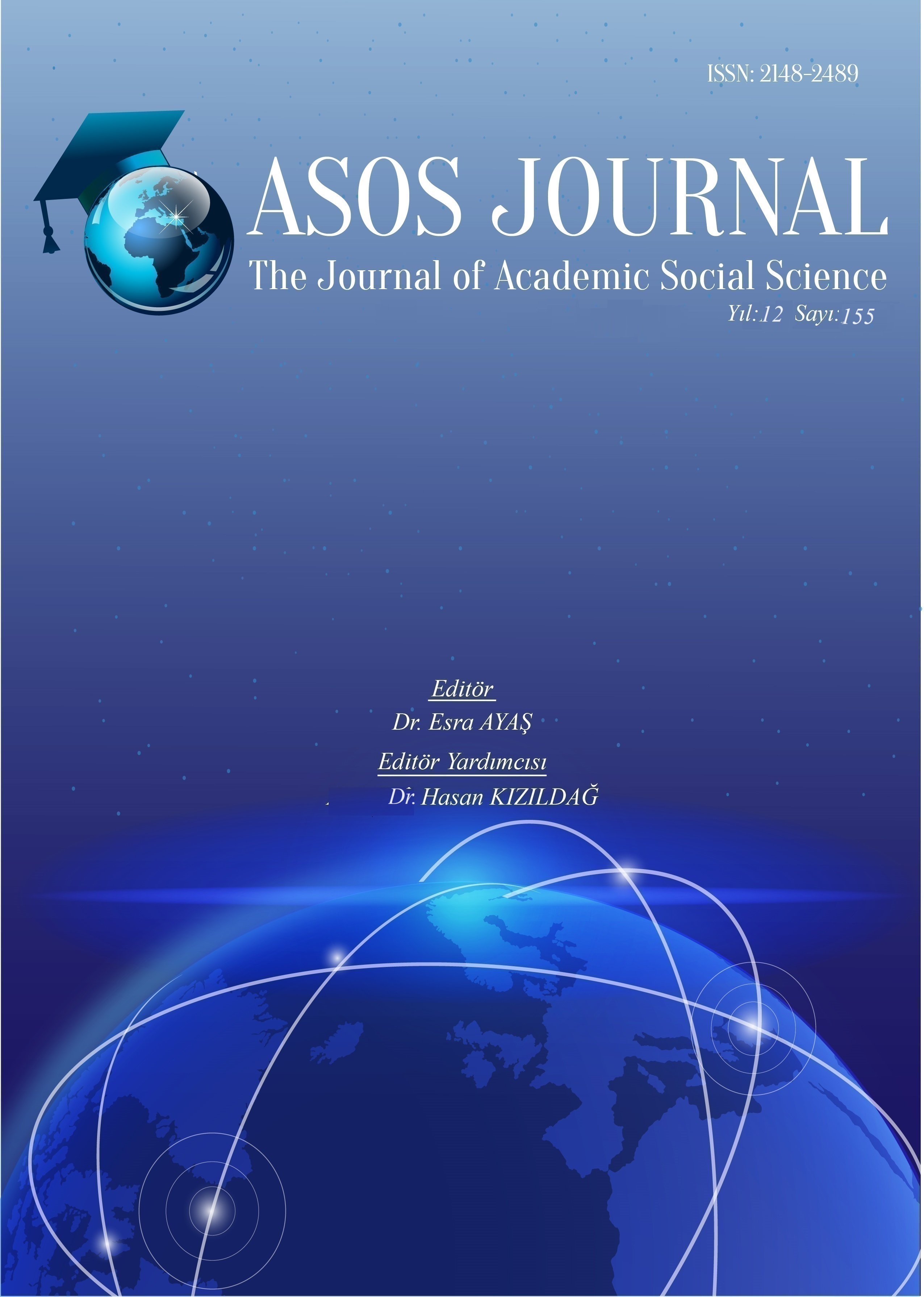SINIF ÖĞRETMENLERİNİN FEN VE TEKNOLOJİ DERSİNDE YÖNTEM VE TEKNİKLERİ UYGULAMALARINA İLİŞKİN FAKTÖRLERİN BELİRLENMESİ, ERZURUM İLİ ÖRNEĞİ
Author :
Abstract
Bu çalışmanın temel amacı ilkokul 4. ve 5. sınıf fen ve teknoloji dersinde uygulanan yöntem ve teknikleri Erzurum ili merkez ilçelerdeki öğretmenler açısından karşılaştırmaktır. Araştırmadan elde edilen veriler, 2009-2010 eğitim öğretim döneminde Erzurum merkezde bulunan on iki farklı ilköğretim okulunda görevli 233 sınıf öğretmeni ile yüz-yüze yapılan görüşmelerden elde edilmiştir. Toplanan verilerin analizinde "SPSS 16" istatistik paketinden yararlanılmıştır. Ayrıca öğrencilerin katılımını etkileyen kırk beş unsuru değerlendirmek için 5'li Likert ölçeği kullanılarak Cronbach alfa güvenirlik katsayısı 0,93 olarak bulunmuştur. Bu dikkate alınan ölçekte öğretmenin öğrencilere isimleriyle hitap etmesi faktörü 4,65 puanla birinci sırada yer alırken, ikinci sırada 4,59 puanla öğretmenin kullandığı yöntem, teknikler ve etkinlikler, üçüncü sırada ise 4,58 puan ile konuyla ilgili güncel olaylarla olan ilişkidir. Cinsiyet açısından bu faktörler dikkate alındığında erkek öğretmenler öğrenci isimlerinin ve konuyla ilgili güncel olayların öğrencilerin derse katılımında daha etkili olduğunu düşünürken, kadın öğretmenler derste kullanılan yöntem, teknik ve etkinliklerin daha etkili olduğunu düşünmektedir. Ayrıca bu üç faktörün daha etkili olduğunu belirten öğretmenlerin on yıldan az deneyime sahip oldukları ve genellikle özel okul öğretmeni oldukları belirlenmiştir. Bu sonuçlar dikkate alındığında, kendilerini kanıtlamalarına izin verilen öğretmenlerin, öğrencilerini daha etkili kılmak için daha fazla çaba harcadıkları; dolayısıyla öğrencilere isimleriyle hitap edilerek, teknolojiden yararlanılarak, dersin dikkat çekici örneklerine yer verilerek daha fazla öğrencinin derse katılımı sağlanabilir.
Keywords
Abstract
The principal purpose of this study is to compare the methods and techniques applied in science and technology courses of 4th and 5th grades in primary schools in terms of teachers in the central districts of Erzurum Province. The data obtained from the study were obtained from face-to-face interviews with 233 classroom teachers in twelve different primary schools in the center of Erzurum during the 2009-2010 academic period. The statistical package "SPSS 16" was used to analyze the data collected. A 5-point Likert scale was used to assess forty-five elements influencing the involvement of students, and the reliability coefficient of Cronbach's alpha was found to be 0.93. In this participation, the factor that the teacher addresses the students by their names is the number one factor at 4.65 points which is stated as the second point is the method, techniques, and activities used by the teacher at 4.59 points, and the third remarkable factor with 4.58 points is the relationship with current events related to the subject. Considering these factors in terms of gender, male teachers believed that student names and current events related to the subject were more effective in students' participation in the lesson, whereas female teachers were more likely to hold that the methods, techniques, and activities used by the teacher were more effective. In addition, it was determined that teachers who stated that these three factors were more effective had less than ten years of experience and were generally private school teachers. Considering these results, it can be concluded that teachers who are allowed to prove themselves make more efforts to make their students more effective; therefore, more students can be ensured to participate in the lesson by addressing students by their names, using technology, and providing remarkable examples of the lesson.





